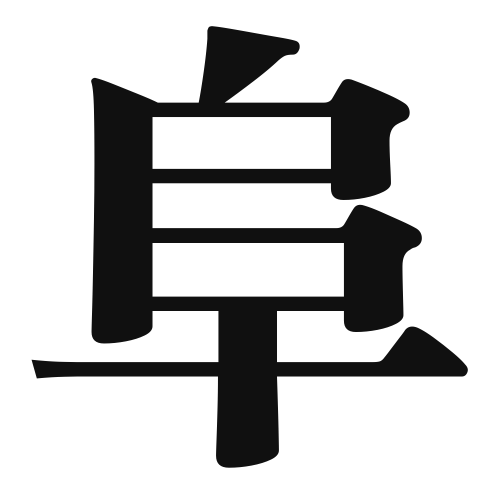1. Overview of Meaning
The kanji “阜” (fu) generally means “hill” or “mound.” It is often used to describe elevated landforms and can also refer to a place where people gather or settle.
2. Formation and Radical
Formation of the Kanji: The kanji “阜” is classified as a pictogram, representing a raised area of land. It visually resembles a hill or mound.
Radical: The radical for “阜” is also “阜,” which is used in other kanji related to landforms and elevation.
3. Examples of Usage
Common Words and Phrases: Some common words that include “阜” are “阜陽” (Fuyang, a place name) and “阜州” (Fuzhou, another place name).
Example Sentences in Daily Conversation:
- 「あの阜はとても美しいです。」(That hill is very beautiful.)
- 「私たちは阜の上でピクニックをしました。」(We had a picnic on the mound.)
4. Synonyms and Antonyms
Similar Kanji: A similar kanji is “山” (yama), which also means “mountain” but typically refers to a larger and more prominent elevation compared to “阜.”
Antonyms: An antonym for “阜” could be “谷” (tani), which means “valley,” representing a low area between hills or mountains.
5. Cultural and Historical Background
Relation to Japanese Culture: In Japanese culture, hills and mounds often hold historical significance, serving as burial sites or locations for shrines.
Proverbs and Idioms: While there may not be specific proverbs that directly use “阜,” the concept of hills and elevated places is often referenced in Japanese poetry and literature, symbolizing challenges or aspirations.
